Source: Journey To Orthodoxy
Converting to Orthodoxy in Spain. Tudor Petcu is a Romanian writer, graduate of the Faculty of Philosophy, University of Bucharest, Romania. He has published a number of articles related to philosophy and theology in different cultural and academic journals. His work focuses on the evolution of Orthodox spirituality in Western societies as well and he is going to publish a book of interviews with Westerners converted to Orthodoxy. In this article, he interviews Jose Pino Francisco Rodriguez, a Spanish convert to Orthodoxy.
In the early 1990s, when Spain experienced an influx of migrant workers from Eastern Europe, the number of Orthodox increased massively bringing the current total to about 1.5 million.
TP: First of all, please tell us how you discovered Orthodoxy and how you would describe your meeting with Orthodox spirituality.
JPFR: I was born in 1976 and, even though practically all the members of my family were atheists (some of them Communist, others Anarchist), thanks to my grandmother I was baptised in the Latin (Catholic) Church as a baby and took my First Communion when I was 9 or 10. As you can imagine, I did not receive any kind of religious education at home. However, when I was 16 or 17, I started asking myself questions and began a journey through different Western Christian denominations that would finally lead me to receive the Sacrament of Confirmation in the Catholic Church in the year 2005.
Some years before that, however (in 2000 or 2001, I would say), I bought a small icon of Our Lord Jesus Christ in a Street market. When I looked at the image of our Saviour, it seemed as if He was looking at me, and this fascination for Byzantine art led me to start studying Orthodoxy. At first the interest was purely intellectual, but gradually I started wondering whether Orthodoxy would be a valid option for me. This question grew withing me little by little. At that time, however, I was not ready to say ‘yes’ to Orthodoxy, as it seemed something completely alien to my culture, language, etc. Please bear in mind that, as I told you, I was a committed Catholic since 2005. Nontheless, I continued reading extensively about the Orthodox Church and learning more each day.
In 2011 my interest in Orthodoxy had become so pressing that I thought I had to do something about it. Even though I perceived that there were some difficulties, I decided to spend some days at an Orthodox monastery in Cantauque (France) to know Orthodoxy in action and have some time to meditate. And there I took my decision to become Orthodox. I suddenly felt that the Orthodox Church was my spiritual home, and that my conversion could wait no longer. Some months later I was received into the Church by Chrismation in the Holy Metropolis of Spain and Portugal (Ecumenical Patriarchate of Constantinople).
My meeting with Orthodox spirituality was a liberating one: I felt free from Medieval Latin theological errors, from a purely human Philosophic approach to religion and an inhumane morality based on a juridical understanding of Soteriology, and I started having a personal relationship with Jesus Christ in His Church.
TP: Which would be in your opinion the unicity of Orthodox spirituality? How do you understand the beauty of Othodoxy?
JPFR: First of all, I am totally convinced that Orthodox Christianity is the original faith preached by Our Lord Jesus Christ and the Apostles, codified in the Creeds and Ecumenical Councils of the Church and defended by the Holy Fathers in their writings. This by itself makes the Orthodox faith unique.
But not only this. Orthodoxy appeals to the whole human person. It is not a purely intellectual religion or a set of dry dogmas that you accept internally. It is a way of life, something that pervades every aspect of your life. We are body and soul, and Orthodoxy touches both aspects. Our faith is physical, “bodily”: we prostrate before icons and kiss them, we light candles in Church, we smell the scent of incense, etc. But it also elevates our soul to a living relationship with God in prayer. The beauty of our divine offices fulfils every aspiration and desire of our spirit. This is a big difference with other religions where, for example, images are forbidden.
TP: What does it mean for you to be an Orthodox Christian in Spain?
JPFR: Being Orthodox in Spain is not an easy thing, and I am not referring to having access to Orthodox parishes (thank God, we have parishes of the different Patriarchates in virtually every province). What I mean is that Orthodoxy in its current form (i.e. Byzantine-rite Orthodoxy) is something alien to the Spanish culture, a religion that has been “imported” by immigrants. The Orthodox Church in Spain is still a “foreign” matter. The Spanish language is very rarely used (most parishes celebrate the Liturgy in Romanian, Greek, Slavonic, etc.).
Being an Orthodox Christian of Spanish origin, then, is a continuous strife to acquire a new mindset and even new customs and traditions. It should be noted, however, that this was not always the case: I firmly believe that the old Hispanic Church of the first millennium was fully Orthodox. But that old Hispanic Orthodoxy disappeared many centuries ago, so adopting foreign habits and rituals is unfortunately the price that we have to pay in order to preserve the faith. In any case, I can assure you something: despite all these difficulties, the joy of professing the true faith really compensates for all the rest.
I am extremely happy of being an Orthodox Christian. I can feel “the joy of Salvation” (Psalm 50) every single day of my life here on Earth, and I hope that God will make me worthy to dwell with Him in Heaven after the Resurrection.
TP: What is the meaning of life that you have discovered in Orthodox spirituality?
JPFR: In Orthodoxy I have discovered the profound meaning of life. We are born into this world to know our Creator, and
our heart will not be still until we accept Christ,
as Blessed Augustine of Hippo used to say.
However, conversion is only the beginning of our journey. We have to become ‘deified’, i.e. through the Spirit we must devoid our lives from our selves and fill them with God, so that “I no longer live, but Christ lives in me” (Gal 2:20). This deifying process is a life-long one. As Saint Seraphim of Sarov said, the goal of Christian life is “the acquisition of the Holy Spirit”.
Being an Orthodox Christian does not mean that your problems will suddenly disppear; however, your perspective changes completely as you know that there is a provident God who will never stop loving and sustaining you, so you can face these problems under a new light. Faith takes us on, so to say: “I can do all this through Him Who gives me strength” (Phil 4:13).
TP: Who are for the most important representatives of Orthodoxy for you? I would also appreciate it very much if you could talk about the most relevant books that helped you to understand Orthodoxy in a deeper way.
JPFR: If we are talking about world representatives, I would of course mention His All Holiness Bartholomew I, Archbishop of Constantinople-New Rome ad Ecumenical Patriarch. He is a humble pastor, a man deprived of all worldly power and whose sole concern is the salvation of our souls. We should never forget that he is the Primate (‘Protos’ in Greek) of all Orthodox Christians, and that for an Orthodox Church to be considered canonical it has to be recognised as such by him.
At the local level, my Spiritual Father, Archimandrite Demetrius, of the Holy Metropolis of Spain and Portugal, is my greatest support in my spiritual life: he shares in my joys and sorrows, he listens to me when I am in distress, and I confess my sins to God in his presence. He is really a loving and caring father to me and always manages to find some time for me despite the fact that he is a really busy man who travels extensively. My Archbishop, Metropolitan Polycarp of Spain and Portugal, is also a prominent figure in my life as an Orthodox Christian. I always find pastoral support in him in my efforts to spread Orthodox Christianity in our country, especially through our news blog http://sacrametropolisortodoxa.blogspot.com
As regards books, as I told you before, I have read extensively over a period of more tan 10 years. However, if I had to highlight one particular book, I would undoubtedly choose The Orthodox Church, by Metropolitan Kallistos Ware of Diokleia. This book has become an international best-seller, and has opened the doors of Orthodoxy to innumerable people all over the world. By the way, he is the director of the Cambridge-based Institute for Orthodox Christian Studies (IOCS), of which I am a distance learning student. Another very interesting book -written by an Anglican, not an Orthodox Christian- is An Introduction to the Christian Orthodox Churches, by John Binns, a volume that is full of very useful information and that was translated into Spanish some years ago. In the field of Theology, I would like to mention Being as Communion, a very thorough introduction to Orthodox ecclesiology by Metropolitan Ioannis Zizioulas of Pergamon, maybe the most important living theologian. In the domain of spirituality, I was impressed to read the works of Saint Silouan the Athonite. And, last but not least, I would like to mention one classic of Russian Orthodox spirituality: The Way of a Pilgrim.
Francisco José Pino Rodríguez was born in Southern Spain in 1976, but since his adolescence he has lived in Madrid. Married and the father of two boys, he has a PhD in English Philology and a Masters Degree in Translation. He works as a translator. He was Chrismated in the Orthodox Church in 2012. Francisco José collaborates with the Holy Metropolis of Spain and Portugal (Ecumenical Patriarchate of Constantinople), whose news blog and Facebook page he administers. He is currently a distance-learning student at the Cambridge Institute for Orthodox Christian Studies (IOCS).
This interview is one of many that will be published in the book “The rediscovery of Orthodox heritage of the West” by Tudor Petcu, containing interviews with different Westerners converted to Orthodoxy. It will be published in two volumes and the first one will appear by the end of this year.

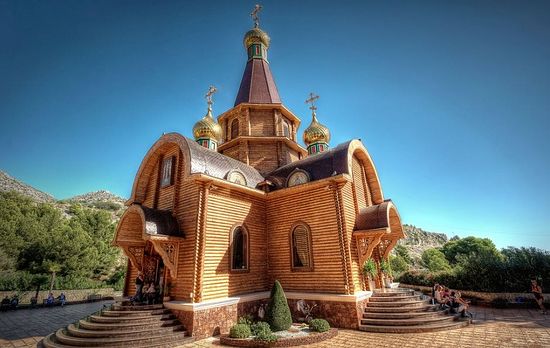
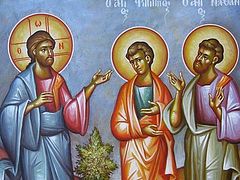
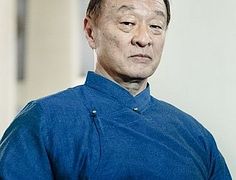
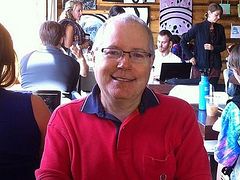
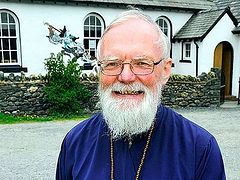
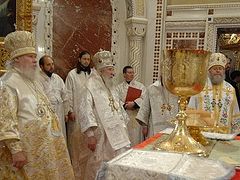
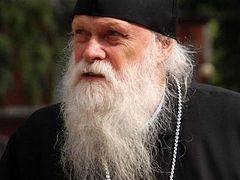
Thank you for posting this interview.
{personal note: when I visited Spain and traveled throughout the country in the 80s, there was not a single Orthodox Christian Church there.)